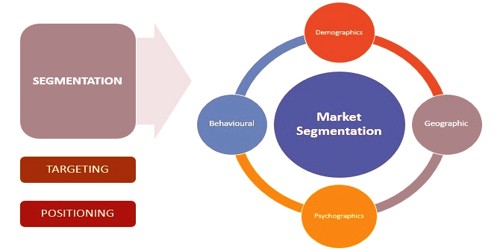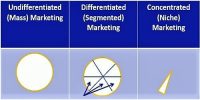Markets consist of buyers, and buyers differ in one or more ways. They may differ in their wants, resources, locations, buying attitudes and buying practices. Through market segmentation, companies divide large, heterogeneous markets into, smaller segments that can be reached more efficiently and effectively with products and services that match their unique needs. Market segmentation reveals the firm’s market segment opportunities. The firm now has to evaluate the various segments and decide how many and which ones to target. In evaluating different market segments, a firm must look at three factors: segment size and growth, segment structural attractiveness and company objectives and resources. The company must first collect and analyze data on current segment sales, growth rates, and expected profitability for various segments. It will be interesting in segments that have the right size and growth characteristics. The target is to create a marketing campaign that focuses on this specific consumer segment. Market segmentation is vital because it helps you comprehend the subgroups that make up your viewers so you can adapt your products and your marketing.
Market segmentation strategies –
- Demographic segmentation categorizes the customers based on their age, belief, income, education, and family size, etc.
- Psychographic segmentation categorizes the customer based on their personality and interests. For example, the customers can be segmented based on their preferable brands, lifestyle, approach, or degree of loyalty.
- Geographic segmentation categorizes the customers based on their location such as area, city, country, and regions.
The company also needs to examine major structural factors that affect long-run segment attractiveness. Segmentation is an effective method to increase the focus of a firm on market segments. A market segment is a subgroup of people or organizations that have one or more characteristics in common that cause them to have the same product needs. For example, a segment is less attractive if it already contains many strong and aggressive competitors. The relative power of buyers also affects segment attractiveness. Even if a segment has the right size and growth and is structurally attractive, the company must consider its own objectives and resources in relation to that segment. The importance of market segmentation is that it allows a business to precisely reach a consumer with specific needs and wants. Some attractive segments could be dismissed quickly because they do not mesh with the company’s long-run objectives. In the long run, this benefits the company because they are able to use their corporate resources more effectively and make better strategic marketing decisions.















